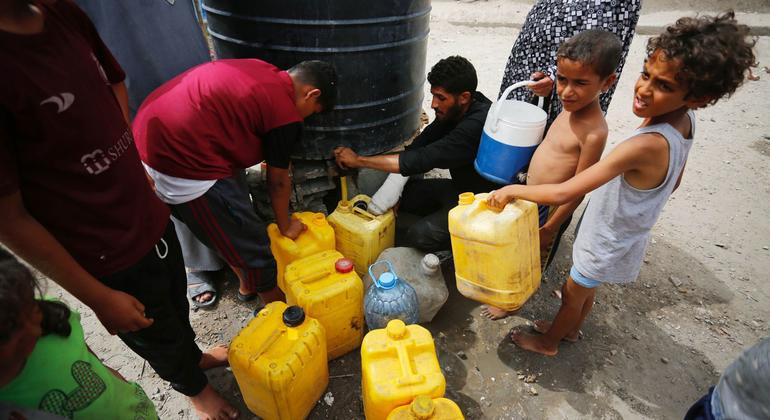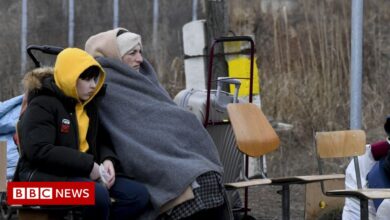Conflict and lawlessness hamper food aid delivery in Gaza: WFP


“Driving through Gaza City to Jabalia, the devastation was unbelievable. In northern Gaza, I didn’t see a single building intact and there was constant shelling with drones buzzing overhead,” He speak.
“People here are hurt and exhausted. One woman who lost her husband told me that this war had been going on for 250 days – but to her it felt like 250 years.”
Looting, violence and insecurity
With lawlessness born of desperation inside Gaza now hindering the movement of goods from the Kerem Shalom border crossing and conflict spreading in the southern and central regions, WFP staff found it nearly impossible to provide enough aid to meet the growing need.
“Our work is getting more and more difficult”said Mr. Skau.
“Staff have to wait five to eight hours a day at checkpoints. Missiles hit our facility, despite deconfliction. The breakdown of law and order means we also face looting and violence amid a major security vacuum.”
Fear of ‘catastrophic’ hunger
WFP fears southern Gaza could soon see the same catastrophic levels of famine previously recorded in the north.
Mr Skau warned that the situation there was deteriorating rapidly.
“A million people were pushed out of Rafah and trapped in a crowded area along the beach in the scorching summer heat. We drove through rivers full of sewage,” he said.
WFP reports that assistance has improved in northern Gaza, where partners are delivering supplies through the West Erez border crossing.
However, the UN agency warned that this support must be sustained and scaled up. Access to clean water, health care, fuel for bakeries and medical supplies are also essential.
Mr. Skau emphasized that “more than anything people want this war to end and so do we.”
Support local market
He said WFP will now look at how to support market operations and provide cash to people so they can start restoring their lives.
He continued: “Emergency assistance remains vital, but we also need to start inspiring some hope – by supporting bakeries and markets – and go beyond meeting food needs for livelihoods. exist to support water sanitation and basic health care needs.”
“Only in this way can we help restore a more dignified form of assistance that goes beyond meeting basic food needs. During my previous visit in November, everyone I met was angry. Now they were exhausted and just wanted this war to end.”
Mr. Skau was in the area for a total of three days. He also visited the West Bank and Jerusalem, in addition to Gaza, meeting with staff, partners and Palestinians.
In May, WFP assisted more than one million people across the West Bank and Gaza, although rations were reduced due to limited access and depleted food stocks.
The United Nations agency continues to call for an immediate ceasefire in Gaza and safe and sustainable access to deliver life-saving aid.
Health crisis grows in the West Bank: WHO
Separately, the World Health Organization (WHO) speak on Friday that they remained concerned about the escalating health crisis in the occupied Palestinian territory.
This includes the West Bank, where attacks on medical infrastructure and increased movement restrictions are affecting access to healthcare.
Violence has spiked since the start of the war in Gaza on October 7, leading to the deaths of 521 Palestinians, including 126 children, in the West Bank, which includes East Jerusalem. More than 5,200 people were injured.
WHO has recorded 480 attacks on health care facilities, leaving 16 dead and 95 injured. The attacks affected 54 medical facilities, 20 mobile clinics and 319 ambulances.




